Related Research Articles

The Commodore 64, also known as the C64, is an 8-bit home computer introduced in January 1982 by Commodore International. It has been listed in the Guinness World Records as the highest-selling single computer model of all time, with independent estimates placing the number sold between 12.5 and 17 million units. Volume production started in early 1982, marketing in August for US$595. Preceded by the VIC-20 and Commodore PET, the C64 took its name from its 64 kilobytes(65,536 bytes) of RAM. With support for multicolor sprites and a custom chip for waveform generation, the C64 could create superior visuals and audio compared to systems without such custom hardware.

Commodore International Corporation was a Bahamian home computer and electronics manufacturer with executive offices in the United States founded by Jack Tramiel and Irving Gould. Commodore International (CI), along with its subsidiary Commodore Business Machines (CBM), was a significant participant in the development of the home computer industry in the 1970s to early 1990s. In 1982, the company developed and marketed the world's second-best selling computer, the Commodore 64, and released its Amiga computer line in July 1985. Commodore was one of the world's largest personal computer manufacturers, with sales peaking in the last quarter of 1983 at $49 million.
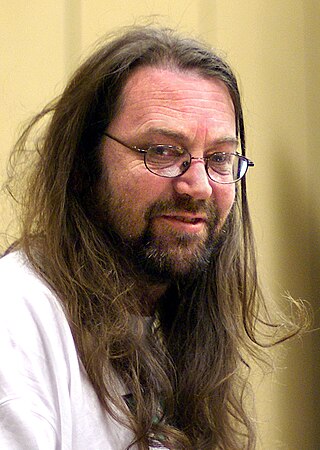
Jeff Minter is an English video game designer and programmer who often goes by the name Yak. He is the founder of software house Llamasoft and has created dozens of games during his career, which began in 1981 with games for the ZX80. Minter's games are shoot 'em ups which contain titular or in-game references demonstrating his fondness of ruminants. Many of his programs also feature something of a psychedelic element, as in some of the earliest "light synthesizer" programs including Trip-a-Tron.
David Whittaker is an English video game composer. He is known for writing video game music in most of the 1980s and early 1990s for different formats.

The Commodore 16 is a home computer made by Commodore International with a 6502-compatible 7501 or 8501 CPU, released in 1984 and intended to be an entry-level computer to replace the VIC-20. A cost-reduced version, the Commodore 116, was mostly sold in Europe.

The Commodore Plus/4 is a home computer released by Commodore International in 1984. The "Plus/4" name refers to the four-application ROM-resident office suite ; it was billed as "the productivity computer with software built in".

Rob Hubbard is a British composer best known for his musical and programming work for microcomputers of the 1980s, such as the Commodore 64.
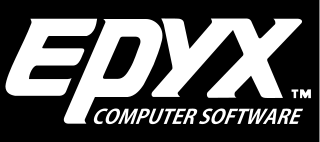
Epyx, Inc. was a video game developer and video game publisher active in the late 1970s and 1980s. The company was founded as Automated Simulations by Jim Connelley and Jon Freeman, originally using Epyx as a brand name for action-oriented games before renaming the company to match in 1983. Epyx published a long series of games through the 1980s. The company is currently owned by Bridgestone Multimedia Group Global.
The Commodore 64 amassed a large software library of nearly 10,000 commercial titles, covering most genres from games to business applications, and many others.
Odin Computer Graphics were a Liverpool-based computer games developer who came to prominence in the mid-1980s with a variety of titles for the ZX Spectrum, Commodore 64 and Amstrad CPC home computers.
Thalamus Ltd was a British computer game developer that published titles for a number of 8-bit and 16-bit platforms during the late 1980s and early 1990s.

Jeroen Godfried Tel, also known as WAVE, is a Dutch composer. He is best known for numerous computer game tunes he wrote in the 1980s and early 1990s for the Commodore 64. His most popular compositions appear in the following Commodore 64 games: Combat Crazy, Cybernoid, Cybernoid II, Dan Dare 3, Eliminator, Hawkeye, Myth: History in the Making, Nighthunter, Robocop 3, Rubicon, and Supremacy.

The Commodore 64 Games System is the cartridge-based home video game console version of the popular Commodore 64 home computer. It was released in December 1990 by Commodore into a booming console market dominated by Nintendo and Sega. It was only released in Europe and was a considerable commercial failure. The C64GS came bundled with a cartridge containing four games: Fiendish Freddy's Big Top O'Fun, International Soccer, Flimbo's Quest, and Klax.

Ben Daglish was an English composer and musician. Born in London, his parents moved to Sheffield when he was one year old. He was known for creating many soundtracks for home computer games during the 1980s, including such as The Last Ninja, Trap, Krakout, and Deflektor. Daglish teamed up with fellow C64 musician and prolific programmer Tony Crowther, forming W.E.M.U.S.I.C., which stood for "We Make Use of Sound in Computers". Daglish had attended the same school as Crowther. Daglish mostly worked freelance but was employed by Gremlin Graphics for a couple of years.
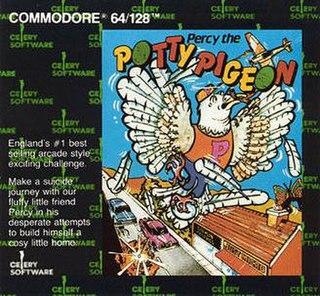
Percy The Potty Pigeon is computer game written by Shaun Hollingworth for the ZX Spectrum and published by Gremlin Graphics in 1984. The Commodore 64 version was programmed by Antony Crowther. There are 2 versions of the game. In the C64 version the goal is to fly around and collect sticks to build a nest whereas the Spectrum version required worms collecting and feeding the chicks. The player can defecate on cars and make them crash.
Alligata Software Ltd. was a computer games developer and publisher based in Sheffield in the UK in the 1980s.

Paul Norman is an American game designer, musician, composer, and computer programmer. He has been active in the music scene since 1970 and has been involved with the development of computer entertainment and information since 1982, including the production of Forbidden Forest in 1983.
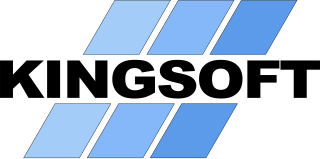
Kingsoft GmbH was a German video game company based in Aachen. The company was founded in 1982 by Fritz Schäfer out of his parents' house in Mulartshütte (Roetgen) to sell his chess simulation game Boss, which he developed the year before. Kingsoft expanded into third-party publishing in 1983, starting with Galaxy by Henrik Wening. Most of their games were released for computers developed by Commodore International, predominantly the Commodore 64, Commodore 16 and later Amiga, and were usually based on other company's titles for different platforms. Kingsoft moved to Aachen in 1987 and established a distribution service before ceasing publishing in favour of distribution in 1993. The company was acquired in March 1995 by Electronic Arts, who retired the Kingsoft name later that year.

Scene World Magazine is a disk magazine for the Commodore 64 home computer. The magazine has been released regularly since February 2001.
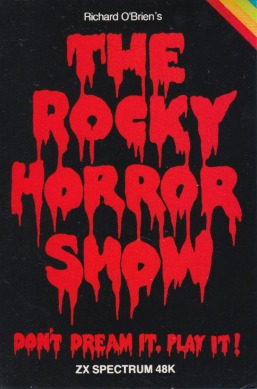
The Rocky Horror Show is a video game, based on the musical of the same name, it was developed and published by CRL Group. It was released for Apple II, Commodore 64, Commodore 128, ZX Spectrum, and Amstrad CPC created by the CRL Group PLC.
References
- MobyGames - Antony Crowther
- Legends of the C64 article on Antony 'Tony' Crowther (aka Ratt)
- Notes
- ↑ "Commodore Auteur". Gameological Society. 5 February 2013. Archived from the original on 16 May 2019. Retrieved 4 May 2019.
- 1 2 "The Big Crowther Interview - Zzap Issue 1".
- ↑ "Cheating's more fun! (Interview with Tony Crowther)". Personal Computer Games (8): 63. July 1984.
- ↑ Antony Crowther interview at Amiga Lore